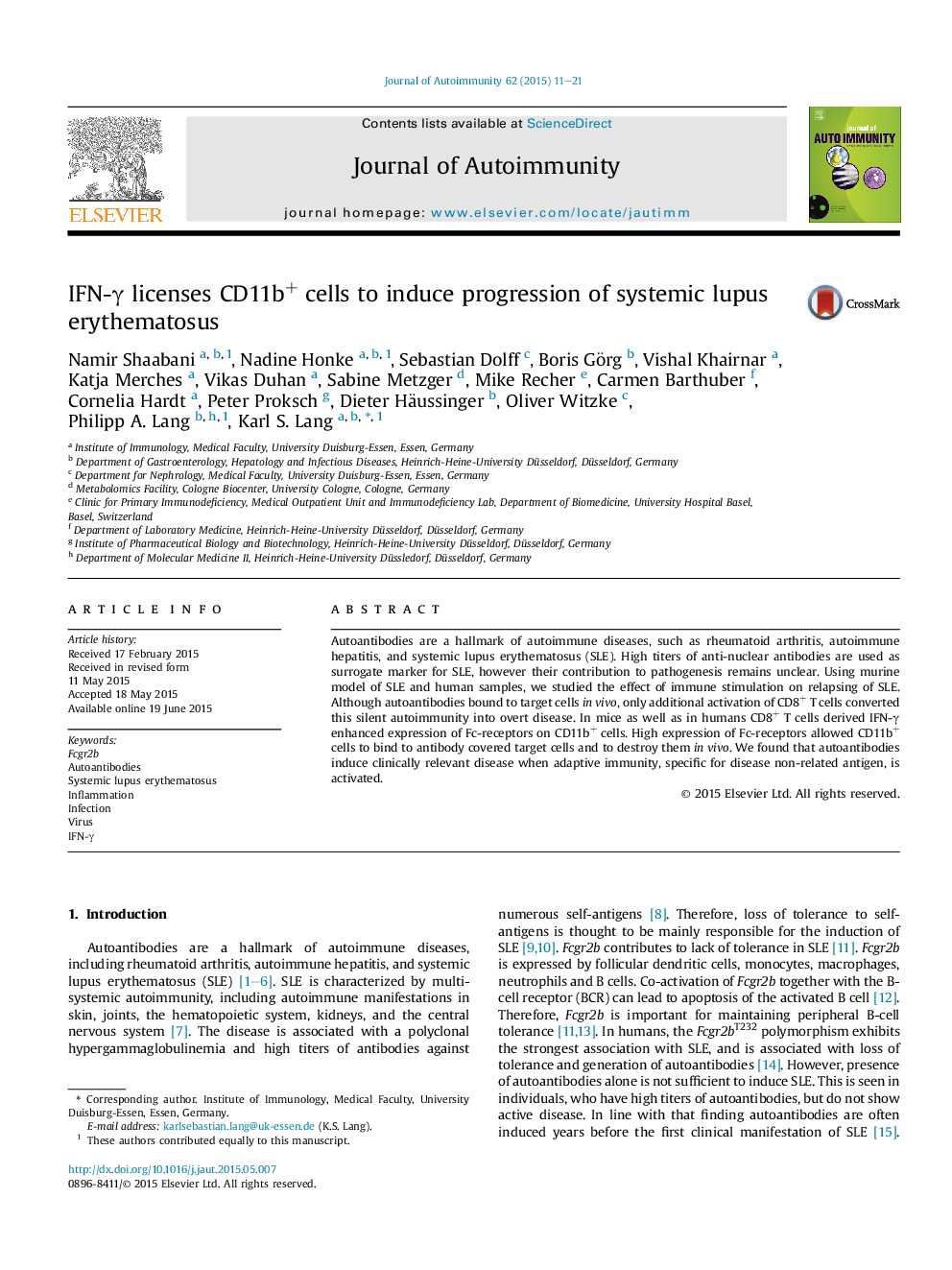| Article ID | Journal | Published Year | Pages | File Type |
|---|---|---|---|---|
| 3367680 | Journal of Autoimmunity | 2015 | 11 Pages |
•Autoantibodies alone are not sufficient to induce overt autoimmune disease.•CD8+ T cells derived IFN-γ activates CD11b+ cells and licences them to attack autoantibodies-opsonized tissues and autoimmunopathology.•Frequency of IFN-γ+ CD8+ T cells correlates with disease activity in SLE patients.
Autoantibodies are a hallmark of autoimmune diseases, such as rheumatoid arthritis, autoimmune hepatitis, and systemic lupus erythematosus (SLE). High titers of anti-nuclear antibodies are used as surrogate marker for SLE, however their contribution to pathogenesis remains unclear. Using murine model of SLE and human samples, we studied the effect of immune stimulation on relapsing of SLE. Although autoantibodies bound to target cells in vivo, only additional activation of CD8+ T cells converted this silent autoimmunity into overt disease. In mice as well as in humans CD8+ T cells derived IFN-γ enhanced expression of Fc-receptors on CD11b+ cells. High expression of Fc-receptors allowed CD11b+ cells to bind to antibody covered target cells and to destroy them in vivo. We found that autoantibodies induce clinically relevant disease when adaptive immunity, specific for disease non-related antigen, is activated.
